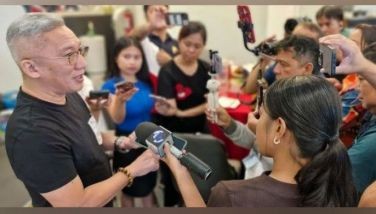Groups unite to battle illiteracy in the Philippines
CEBU, Philippines - Various stakeholders are joining forces in this year’s National Literacy Conference to eradicate illiteracy in the country.
Members of the academe and government and non-government organizations all over the country are convened in Cebu City for a 3-day conference that kicked off yesterday, aiming to improve literacy of students and the community in general on political, socio-cultural, media, digital and financial facets.
The conference is also in celebration of the National Literacy Month that is held every September. The event is spearheaded by the Department of Education through the Literacy Coordinating Council.
DepEd Undersecretary for Programs and Projects Dina Ocampo who also chairs the LTC said there is a need to gear up and institute measures to be able to catch up with the pace of technological change.
She said the country has high rates on basic literacy, which is writing and reading. However, its functional literacy is only above average at around 60-percent. A functionally literate person is one who can read, write and compute or one who can read, write, compute and comprehend.
According to the National Statistics Office’s 2010 Census of Population and Housing, 97.5 percent or 69.8 million Filipinos are considered literate or “can read and write in any language or dialect in the Philippines.”
Meanwhile, Fifty-eight million of the estimated 67 million Filipinos (10 to 64 years old) are functionally literate, according to the results of the 2008 Functional Literacy, Education and Mass Media Survey (FLEMMS).
Ocampo said all sectors have to adapt to changes especially with the emerging technological innovations as not to be left behind.
“Literacy allows life to improve not just morally but socially. The said facets should be embedded in our curricula to further provide quality education,” she said.
Measures and techniques leading to such objective will be shared to participants in various plenary sessions, with this year’s theme “Educational Justice and New Literacies.”
The conference aims to provide a venue for the exchange of good practices and experiences on literacy programs relevant to political, socio-cultural, media, digital and financial literacy.
It also seeks to heighten awareness on new technologies that are vital in education.
Dr. Nalcom Garma, DepEd-9 regional director and one of the keynote speakers yesterday, said it is important to put up resources in every region to uplift quality and accessible education for everybody, including adult learners.
He said strengthening or enhancing school-based management by investing quality educators and school heads are also needed to have “efficient, effective and responsive” schools, which he stressed are “focal points of education.”
While strengthening school management, teachers must also be empowered, including those assigned in far-flung areas.
“As we teach them to compute and learn, we should not neglect forming the right characters of the students. Turuan natin sila ng tamang character and everything will follow,” he said stressing that everybody has the power to mold a child’s character.
Garma said that apart from the personnel, other important factors, like the educational system and classrooms, should also be looked into.
“Are our school/classrooms healthy and conducive for learning? Are we still giving lectures through the use of old instructional materials? For us to improve learning environment we also have to improve the way we deliver instructions towards new literacies,” he said.
Yves Xavier Bugarin, political affairs head of the Office of Senator Pia Cayetano who chairs the committee on education, arts and culture, agreed with Garma and Ocampo saying that new literacy is a “system” that should be embedded not only in the academe but also in one’s life.
“It should be a culture embedded to us all, not just a subject,” he said. Bugarin will be tackling political literacy tomorrow, October 2 at the DepEd Ecotech Center, Lahug, Cebu. —(FREEMAN)
- Latest























